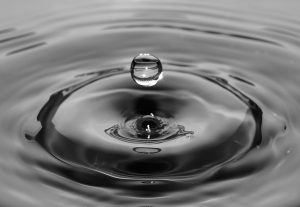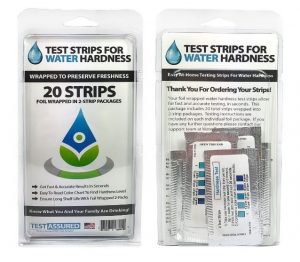
What Is Hard Water?
Hard water refers to water with a high concentration of dissolved minerals. The most common minerals that cause hard water are calcium and magnesium. While hard water can have some unpleasant characteristics such as odor or an off taste, it is not considered a health hazard. In fact, it is believed that the high concentration of calcium and magnesium can help people meet the necessary dietary requirements for these important minerals.
What Exactly Is Water Hardness?
The hardness of your water is determined by how much calcium and magnesium are present in the water. Water is considered to be too hard when it has large amounts of dissolved calcium, magnesium, and other minerals. These excess minerals are the reason that you may feel a slight residue remaining after washing your hands. This is a result of the soap and the calcium reacting. It creates a residue that is commonly known as soap scum.
What Is the Difference between Hard and Soft Water?
Hard water often contains chalk and lime in addition to the high levels of calcium and magnesium. This is the reason that dishes and glasses come out of your dishwasher with spots and residue. When you wash your clothes in hard water, they may have a dingy appearance due to the residue that is left in the fabric. Hard water can also cause your hair to feel sticky and appear dull. Even your appliances can be affected because the hard water creates clogs and buildup, causing them to work harder and use more energy.
Hard water can be treated with water softeners which provide many benefits. With soft water, soap lathers up much more efficiently and rinses off easily leaving dishes and clothes cleaner. With a water softener, you will no longer have to worry about soap scum in the tub and shower. Another bonus is that soft water is gentler on your appliances, improving their efficiency and helping them to last longer.
How to Test for Water Hardness Levels
If your water is supplied by a water company, you can contact the superintendent of water and request the results of their water tests. If you have a private well or you would like to have your own individual water tested, you can contact the health department to schedule an appointment for testing. Local water testing laborites also conduct tests to determine the hardness of your water.
Another option that provides quick results is to test your water yourself. This can easily be done with an at-home test kit purchased online or from your local hardware store. TestAssured offers a hard water test kit that will give you results in a just a few minutes.
 To perform the hard water test:
To perform the hard water test:
- Remove the test strip from the packet.
- Pick up the strip at the end with no pads.
- Dip the strip in the sample for one second.
- Hold the test strip level and wait 10 seconds.
- Place the strip on the results color chart to determine hardness level.
What Are Normal Water Hardness Levels?
The EPA does not have any standards for allowable levels of water hardness because it does not pose a health risk. Water hardness is classified by the U.S. Department of Interior and the Water Quality Association:
| Hardness Classification | Mineral Levels |
|---|---|
| Soft Water | Calcium levels up to 60 milligrams per liter |
| Moderately Hard Water | Calcium levels between 61 to 120 milligrams per liter |
| Hard Water | Calcium levels between 121 to 180 milligrams per liter |
| Very Hard Water | Calcium levels between above 180 milligrams per liter |
How to Fix Hard Water If You Have It
A simple way to improve the taste of hard water is by using a water filtration pitcher. There are a number of styles and sizes available with different filters and features. A basic model starts around $20. Water filtration pitchers filter out the hard water minerals as well as chlorine and other contaminants.
Another option is the faucet water filter that you attach directly to your faucet. This type of filter makes it easier to use filtered water while cooking.
For a more complete solution, you may want to install a water softening system to remove the minerals from your home’s entire water supply. These systems use sodium to remove the calcium and chlorine from your water. While this option is more expensive than a water filter, it will prevent minerals from building up within your plumbing, extending the life of your water pipes and water using appliances.
If a water-softening system isn’t in your budget, a magnetic water conditioner is a cheaper alternative. Rather than remove the calcium, the magnets act as a conditioner to chemically alter the water, preventing limescale buildup.
Find Out How Hard Your Water Is
Despite the potential health benefits, hard water can become a nuisance. The hardness of your water varies depending on your water source and where you live. Almost 75% of Americans live in a hard water zone. TestAssured’s Water Hardness Test strips are a simple and affordable way to find out just how hard your water is.
